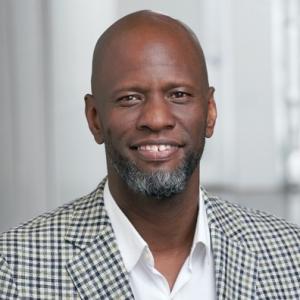
It’s an old question: what’s in a name? When it comes to our work, words matter and names matter. Labels define who we are and what we do. This is the dilemma facing Texas schools today, where so many kids are in need of meaningful help to get them on a safe, stable path to fulfilling their potential.
In our work with Independent School Districts (ISD’s), we often hear about schools’ investments in “counselors.” On its face, this sounds like a solution that will help ensure kids’ success. But while the Dallas Independent School District (DISD) invests in “counselors,” those are largely career counselors who prioritize testing and college readiness, not social workers who address the systemic, underlying issues that force students from the classroom and into the school-to-prison pipeline. And at this present time and season, youth of color – and particularly Black youth – NEED social workers!
During DISD’s 2018-19 school year, Black and Latinx students accounted for 12,708 out-of-school suspensions, while white students accounted for only 363. Similarly, Black and Latinx students accounted for 2,602 in-school suspensions, while white students accounted for only 113. This means that students who are already struggling are pushed out of the classroom, and they face irreparable harm.
It is important for all students to have access to opportunities to help them succeed. But the difference between the various types of “counselors” is important to note, and social workers must be prioritized. Otherwise, we’ll continue to see the vague “counselor” language reflected in budget decisions – and we’ll continue to see investments in strategies that fail to ensure success for every student.
As the education system and the nation adjust to the effects of COVID-19, the police killings of George Floyd and others, and the disparities created by systemic and structural racism, it is clear that kids of color need someone in their schools who is skilled in understanding their perspective, their community, and their needs. But as we move into what many are calling the “new normal” of education in light of COVID-19, we at Perception Equals Potential (P.E.P.) say NO! to a new standard that requires accepting a rehashed version of the old. The old system – which has proven to be detrimental to the health and well-being of youth of color – doesn’t need to be restructured and brought back in a different form. It should be done away with completely.
Again, words matter. So when it comes to our schools, we at P.E.P. say YES to more social workers. We say YES to ridding schools of archaic, crippling zero-tolerance policies. We say YES to defunding the DISD police force and allocating that money towards services that will keep kids out of the justice system.
Where you spend your money tells people what you care about, and at this moment, Texas ISD’s are showing more interest in the “old normal” and less interest in the future and potential of our youth. Join us as we fight to build a new system – one that employs more social workers and psychologists, and one that puts culturally responsive pedagogies in place. Words matter!
About P.E.P.: The P.E.P. Initiative, which stands for “Perception Equals Potential,” takes a system-level approach to dismantling the school-to-prison pipeline. Our requests for change in Dallas regard school personnel and programming. We are especially calling for additional social workers and restorative programming in schools – more critical in light of COVID-19’s impact on students’ well-being and educational development, and in light of the growing awareness around a needed shift in police resources towards healthier, more productive strategies.
